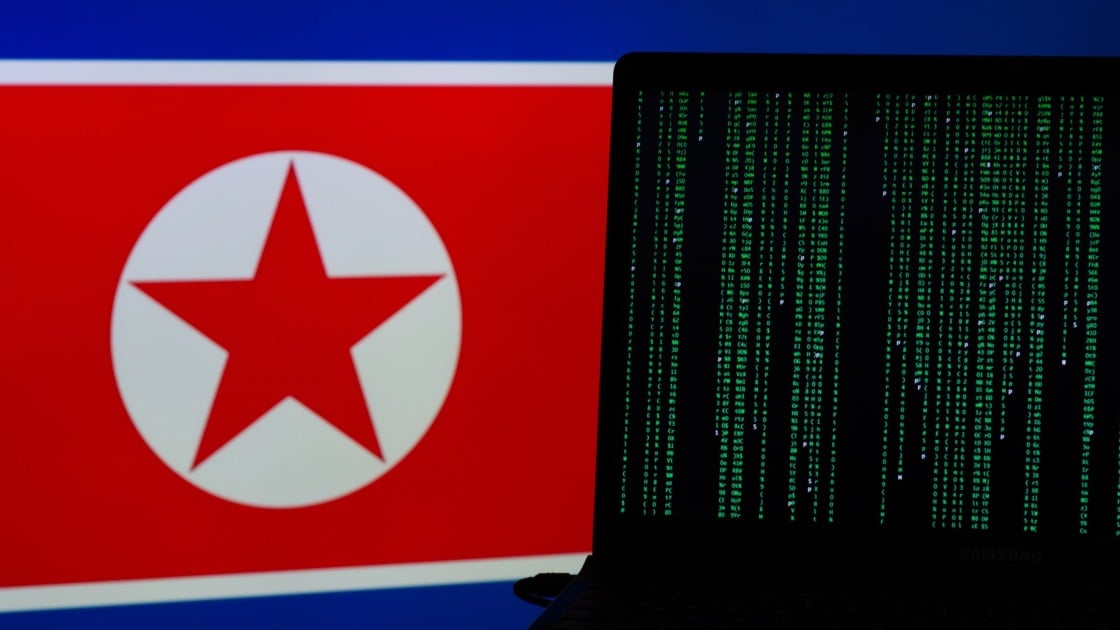How North Korean Actors Exploit US Remote Workers

Table of Contents
Methods Employed by North Korean Actors
North Korean cybercriminals employ a range of tactics to exploit the vulnerabilities inherent in remote work environments. Their methods are often sophisticated, leveraging social engineering and exploiting weaknesses in both individual security practices and organizational security policies.
Phishing and Spear Phishing Attacks
Phishing and spear-phishing attacks remain a primary method for North Korean actors to gain access to systems. They craft convincing emails designed to trick unsuspecting remote workers into revealing sensitive information or downloading malicious software.
- Exploiting Personal Lives: These actors often research their targets, using publicly available information on social media and other sources to personalize their phishing emails, making them appear more legitimate.
- Tailored Spear-Phishing: Spear-phishing campaigns target specific companies and individuals, using insider knowledge to increase the chances of success. This level of targeting makes these attacks particularly effective.
- Examples of Lures: Common lures include fake invoices, promises of employment opportunities, urgent requests for financial information, and notifications of supposed account issues.
- Use of Compromised Email Accounts: To enhance credibility, North Korean actors often compromise legitimate email accounts to send their phishing messages. This makes it harder to identify the attack as fraudulent.
- Sophisticated Social Engineering: These attacks utilize advanced social engineering techniques to bypass even well-trained employees. They prey on human psychology, urgency, and trust.
Malware and Ransomware Deployment
Once initial access is gained through phishing or other means, North Korean actors frequently deploy malware and ransomware to achieve their objectives.
- Delivery Mechanisms: Malicious attachments in emails, links to compromised websites, and even seemingly harmless software updates are common delivery vectors.
- Types of Malware: The malware used varies, including keyloggers that record keystrokes to steal passwords and other sensitive information, data stealers that exfiltrate files, and ransomware that encrypts data and demands a ransom for its release.
- Targeting Outdated Software: Attackers actively seek vulnerabilities in outdated software and operating systems, exploiting known weaknesses to gain unauthorized access. Regularly updating your software is crucial.
- Encryption and Ransom Demands: Ransomware attacks encrypt sensitive data, making it inaccessible until a ransom, often in cryptocurrency, is paid. This can lead to significant financial losses and operational disruption.
Exploiting Weak Home Network Security
The security of home networks often lags behind corporate network security, making remote workers easy targets.
- Unsecured Wi-Fi Networks: Many remote workers use unsecured Wi-Fi networks, making their devices vulnerable to attacks. Using strong passwords and enabling encryption is critical.
- Vulnerable IoT Devices: The increasing use of Internet of Things (IoT) devices in homes introduces additional attack vectors. These devices, often lacking robust security, can be compromised and used as entry points into the network.
- Default Passwords: Many routers and other network devices ship with default passwords, which are easily discoverable and should be changed immediately.
- Lack of Security Software: The absence of firewalls and anti-malware software on home computers creates significant vulnerabilities, leaving remote workers exposed to various threats.
The Consequences of Exploitation
The consequences of successful attacks by North Korean actors targeting US remote workers can be devastating.
Data Breaches and Intellectual Property Theft
Data breaches resulting from these attacks can lead to the loss of significant amounts of sensitive data, including:
- Customer Data: Personal information, financial details, and other sensitive customer data can be stolen and misused.
- Financial Information: Bank account details, credit card numbers, and other financial information are prime targets for theft.
- Trade Secrets and Intellectual Property: Confidential business information, research data, and other intellectual property can be stolen, causing substantial financial damage and competitive disadvantage.
- Reputational Damage: Data breaches severely damage a company’s reputation, eroding customer trust and impacting shareholder confidence. This can lead to significant financial losses.
- Legal Repercussions: Organizations face potential financial penalties and legal repercussions for failing to protect sensitive data.
Financial Losses from Ransomware Attacks
Ransomware attacks can inflict significant financial losses on organizations:
- Decryption and Recovery Costs: The cost of decrypting data, recovering lost information, and restoring systems can be substantial.
- Business Disruption: Ransomware attacks can severely disrupt business operations, leading to lost productivity and revenue.
- Negotiating with Actors: Negotiating with ransomware actors is a complex and ethically challenging situation with no guarantee of success.
- Insurance Limitations: Cybersecurity insurance policies may have limitations on coverage for ransomware attacks.
Protecting Against North Korean Actors
Protecting against North Korean actors requires a multi-layered approach that combines strong individual security practices with robust organizational security measures.
Strengthening Cybersecurity Practices for Remote Workers
Individuals can strengthen their cybersecurity posture by:
- Multi-Factor Authentication (MFA): Implementing MFA adds an extra layer of security to accounts, making them significantly harder to compromise.
- Software Updates: Regularly updating software and patching vulnerabilities is crucial to prevent attackers from exploiting known weaknesses.
- Strong Passwords: Using strong, unique passwords for each account, and employing a password manager, greatly reduces the risk of unauthorized access.
- Phishing Awareness Training: Educating employees on phishing techniques and social engineering tactics is vital in preventing successful attacks.
- Home Network Security: Implementing robust security measures for home networks, such as firewalls and VPNs, is essential for protecting remote workers.
Leveraging Advanced Security Technologies
Organizations can leverage advanced security technologies to further enhance protection:
- Endpoint Detection and Response (EDR): EDR solutions provide advanced threat detection and response capabilities on individual endpoints.
- Security Information and Event Management (SIEM): SIEM systems collect and analyze security logs from various sources to detect and respond to threats.
- Threat Intelligence: Utilizing threat intelligence feeds helps organizations stay ahead of emerging threats and proactively mitigate risks.
- Regular Security Audits and Penetration Testing: Regular security audits and penetration testing help identify vulnerabilities and weaknesses in security infrastructure.
Conclusion
North Korean actors exploiting US remote workers represent a significant and growing threat. By understanding their tactics and implementing robust cybersecurity measures, organizations and individuals can significantly reduce their risk. Protecting against these attacks requires a multi-layered approach, encompassing employee training, advanced security technologies, and a commitment to strong security practices across the entire organization. Don't wait until you become a victim – take action today to protect yourself from the ever-evolving threat of North Korean actors exploiting US remote workers. Learn more about strengthening your cybersecurity posture and mitigating the risks associated with remote work, and stay informed about the latest threats and best practices.

Featured Posts
-
 Heitinga Nieuwe Gesprekken Met Ajax Over Hoofdtrainerschap
May 29, 2025
Heitinga Nieuwe Gesprekken Met Ajax Over Hoofdtrainerschap
May 29, 2025 -
 Brann I Oslo Fire Bater Odelagt Nyhetsvarsel
May 29, 2025
Brann I Oslo Fire Bater Odelagt Nyhetsvarsel
May 29, 2025 -
 Eyd Astqlal Alardn Thnyt Khast Mn Alshykh Fysl Alhmwd Ebr Jw 24
May 29, 2025
Eyd Astqlal Alardn Thnyt Khast Mn Alshykh Fysl Alhmwd Ebr Jw 24
May 29, 2025 -
 Covid 19 E Long Covid L Ecdc Conferma L Efficacia Della Vaccinazione
May 29, 2025
Covid 19 E Long Covid L Ecdc Conferma L Efficacia Della Vaccinazione
May 29, 2025 -
 Brisbane Mayor Withdraws Funding From Award Winning Musician
May 29, 2025
Brisbane Mayor Withdraws Funding From Award Winning Musician
May 29, 2025
